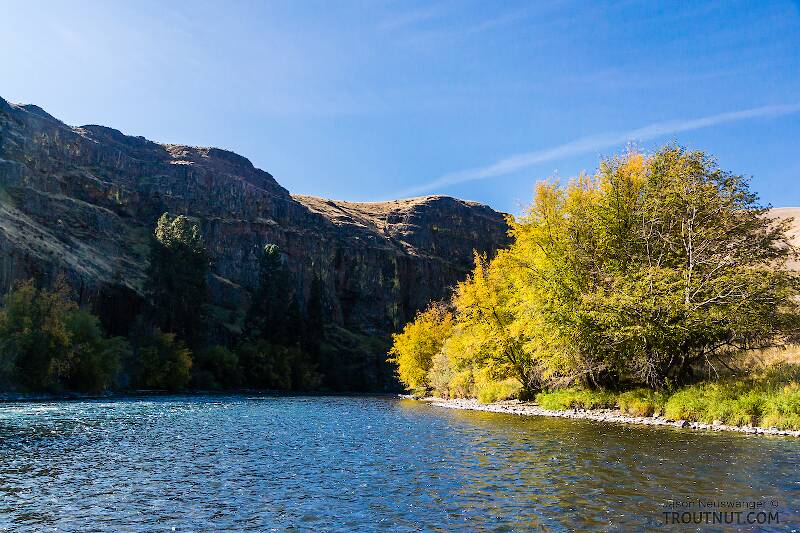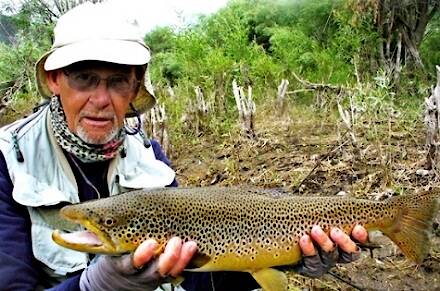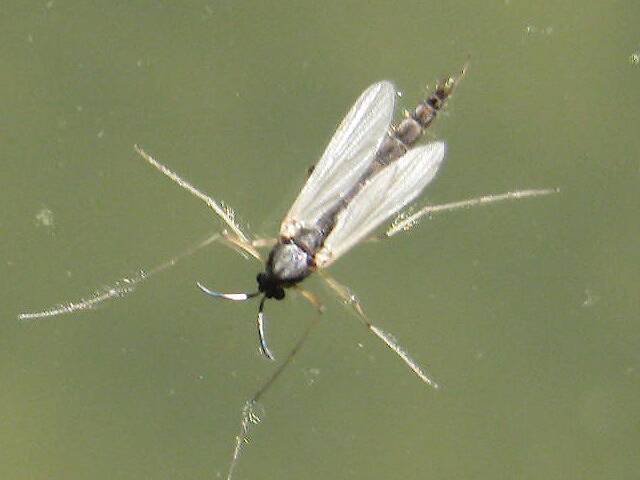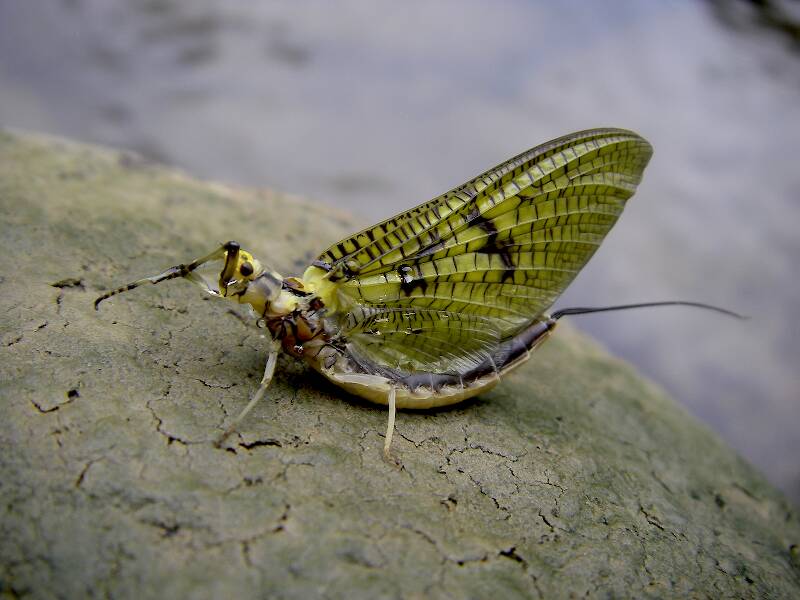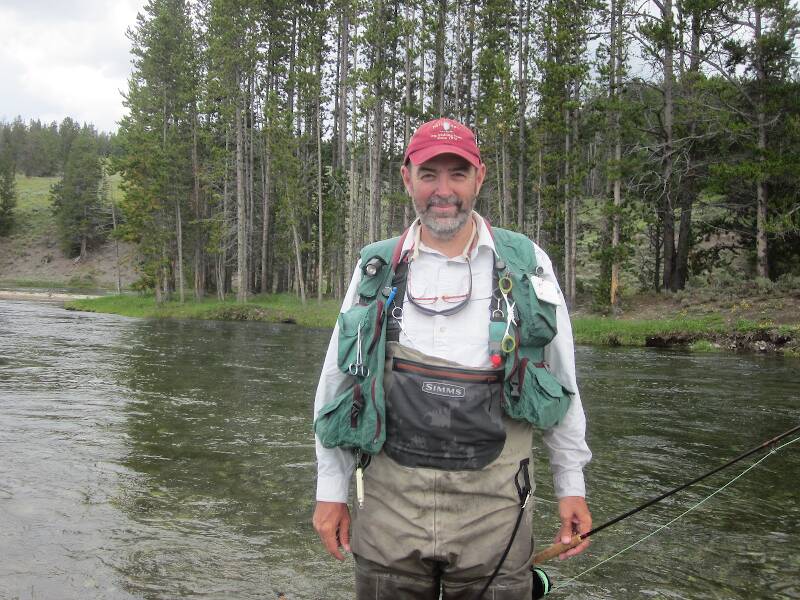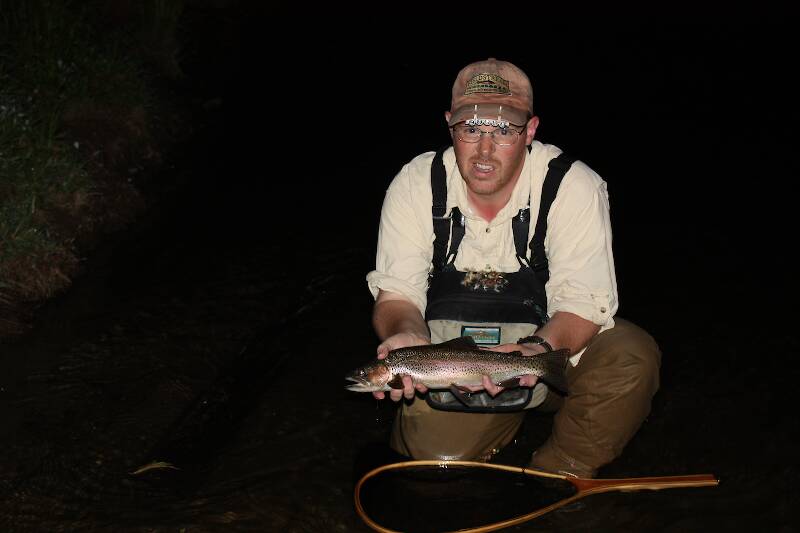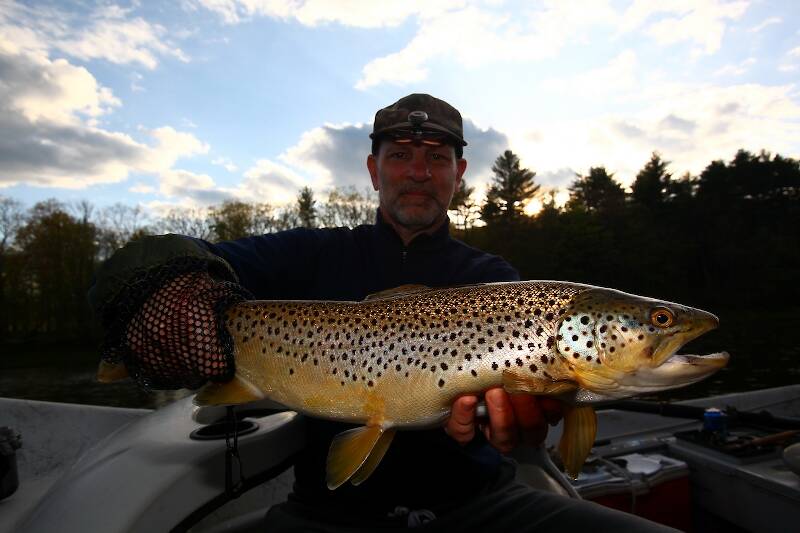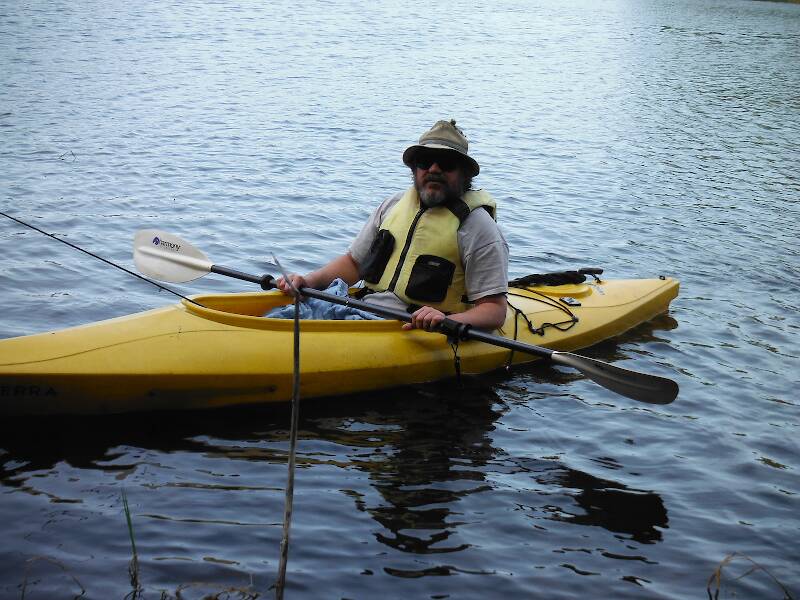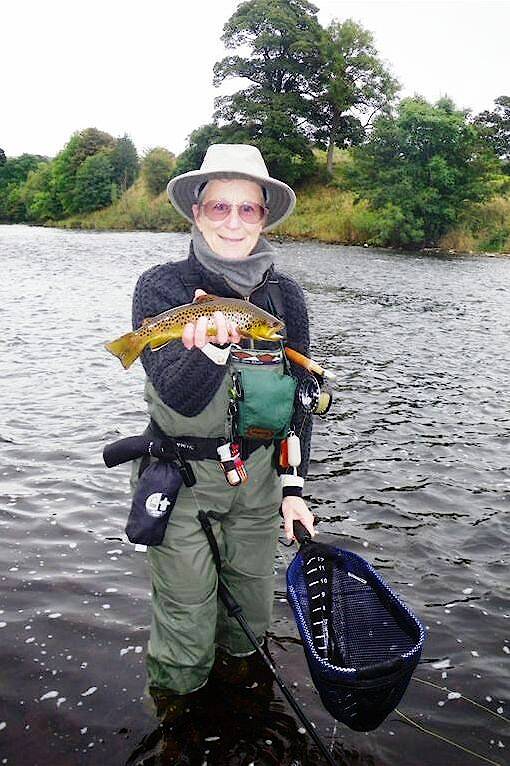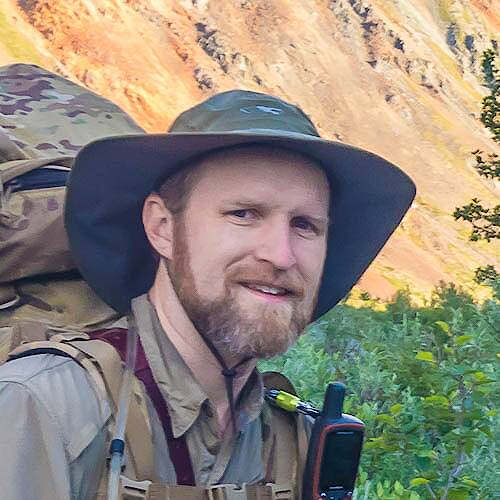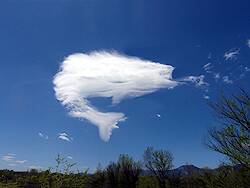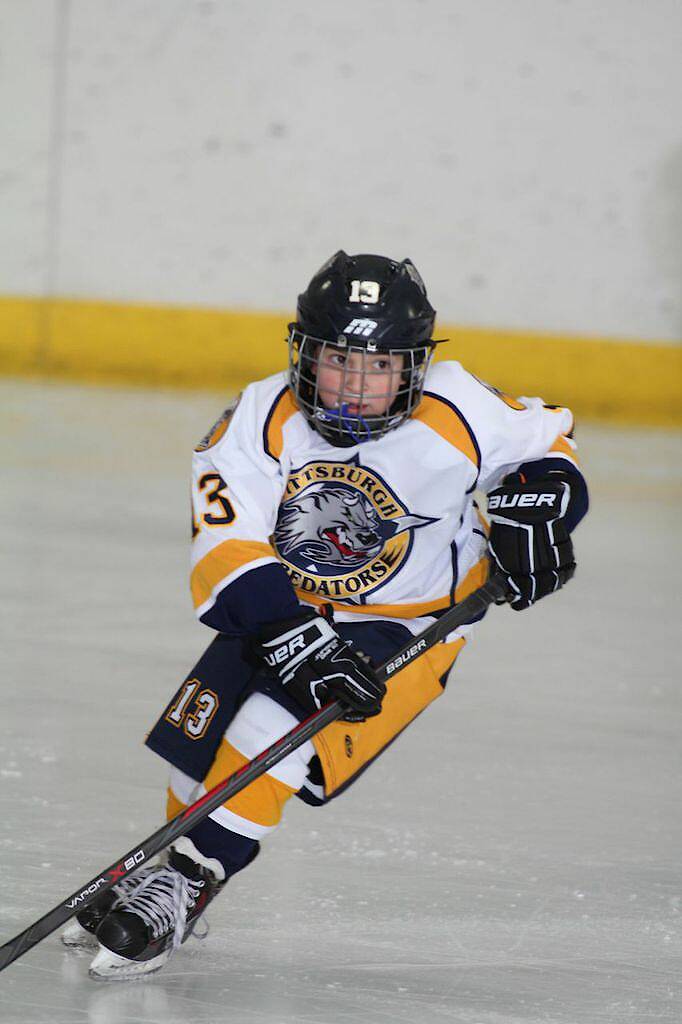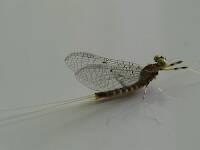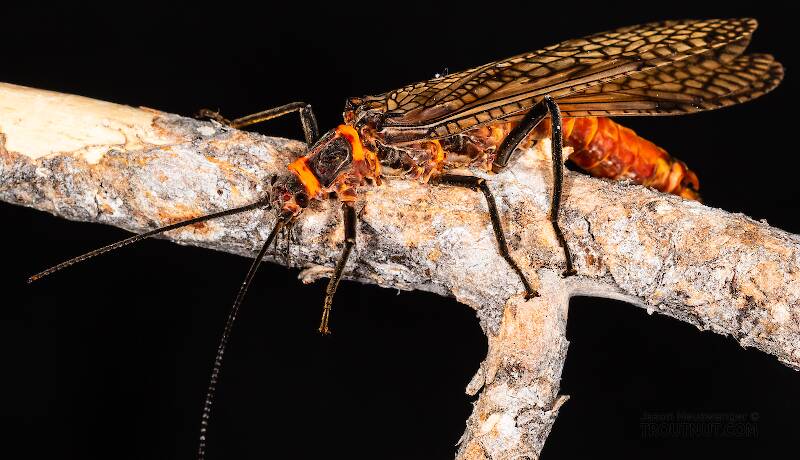
Salmonflies
Pteronarcys californica
The giant Salmonflies of the Western mountains are legendary for their proclivity to elicit consistent dry-fly action and ferocious strikes.
Featured on the forum
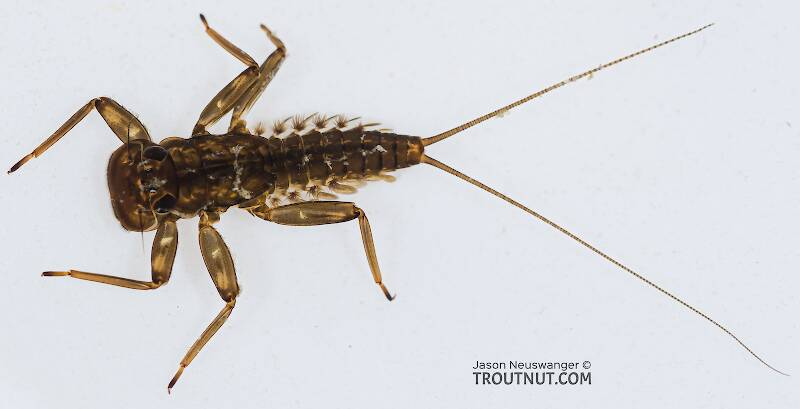
This specimen keys to the Epeorus albertae group of species. Of the five species in that group, the two known in Washington state are Epeorus albertae and Epeorus dulciana. Of the two, albertae has been collected in vastly more locations in Washington than dulciana, suggesting it is far more common. On that basis alone I'm tentatively putting this nymph in albertae, with the large caveat that there's no real information to rule out dulciana.

Troutnut is a project started in 2003 by salmonid ecologist Jason "Troutnut" Neuswanger to help anglers and
fly tyers unabashedly embrace the entomological side of the sport. Learn more about Troutnut or
support the project for an enhanced experience here.
By Troutnut on November 26th, 2014, 4:23 pm EST
I didn't post much to the site this year because I was very busy finishing my Ph.D. at the University of Alaska Fairbanks and immediately starting an exciting post-doc. I defended my dissertation in June and graduated in August, and my dissertation was finally published online recently. Anyone curious what I've been up to in Alaska can download it from ProQuest as a free PDF here:
New 3-D video methods reveal novel territorial drift-feeding behaviors that help explain environmental correlates of Chena River Chinook salmon productivity
The long-winded title results from my doing four chapters on seemingly separate topics that deeply connect to each other in detail. Overall, my dissertation is about understanding what processes and environmental variables control the success of salmonids--both individuals and entire populations. I directly studied juvenile (fingerling) Chinook salmon, but many of the results are likely to apply to trout, grayling, and any other stream fishes that engage in drift feeding (i.e. holding a stationary feeding position in the current and darting back and forth to intercept items of food).
Details of my dissertation
Chapter 1 is about technology, especially a computer program I developed (called VidSync) that makes it possible record fish with a pair of video cameras and then quickly make thousands of measurements of the fish, their environment, and their behavior. The chapter describes this program and the math behind it (which I didn't invent from scratch, although I made some important improvements). VidSync made the next two chapters possible.
Chapter 2 is about how tiny debris in the drift affect drift-feeding fish (and it was published already in Environmental Biology of Fishes). Even crystal-clear water naturally contains a large amount of fine debris, which is difficult to notice in person but jumps out on video shot at certain lighting angles, much like the dust in the air is revealed by a lone sunbeam shining into a dark room. This debris comes from many different processes, such as the gradual breakdown of wood and leaf litter by aquatic insects and bacteria, or insects shedding their exoskeletons (exuviae) between instars or during emergence. Drift-feeding fish face the very difficult task of distinguishing between debris and food of a similar size and color. It's probably especially difficult for small fish (because there's more small debris of a similar size to their prey). Most of the foraging effort of juvenile Chinook salmon was directed at debris items they either rejected without capturing or captured and spit out. This doesn't mean they're bad at feeding--it just means they had to engage their senses of taste and touch in an important way. Even large trout are sometimes found with debris in their stomachs and observed rising to inspect inedible items... including our flies. It's a bit humbling as a fly fisherman to realize that we aren't always fooling fish into thinking our fly is food--we're basically just getting them to give it the benefit of the doubt, just like they do to countless other bits of natural flotsam.
Chapter 3 is about territoriality. Previous studies of salmonid territoriality have described fish widely spaced across a pool, with territorial boundaries that can be mapped out in 2-D (i.e., mapped from a "top view" of the pool). Juvenile Chena River Chinook salmon, at first glance, behave very differently--they feed in large, 3-D schools (meaning some fish are directly above and below others) along the edges of the river. Even though this is very different from the typical, widely spaced patchwork of 2-D territories, and even though feeding territories have never been detected within schools of fish or any other animal groups, I found that some Chinook salmon were very territorial. Some were transient, "just passing through" the school in a minute or less. Many others used strategies in between the two extremes, which haven't really been studied before.
Chapter 4 is about the effect of high stream flow on the Chena River Chinook salmon population. I analyzed 20 years of salmon run data from the Alaska Department of Fish and Game, and found that the salmon do very poorly when they experienced a high-water year in the river as juveniles. This effect is probably relevant to the broader decline of Chinook salmon throughout the Yukon River drainage in recent years, although there's also probably more to the story. Hundreds of scientists are working on bits and pieces of that puzzle, because so many people depend on those fish for subsistence in rural villages. This chapter identified an important clue, but it's not the whole story.
If you're interested in a slightly more technical explanation of these chapters and how they fit together, read the abstract in the dissertation PDF.
What's next?
The same week I turned in the final draft of my dissertation, I began remotely working as an Alaska-based post-doctoral research associate at the University of Georgia. I'm working with a top expert on drift-feeding behavior, UGA Professor Gary Grossman (who writes the "Ask Dr. Trout" column in American Angler). We're starting a 3-year project studying the mechanics of drift-feeding in juvenile Chinook salmon, as well as adult grayling, and dwarf dolly varden. My hope and expectation is that this project will greatly advance our understanding of the mechanisms that control the behavior and feeding success of drift-feeding fish.
New 3-D video methods reveal novel territorial drift-feeding behaviors that help explain environmental correlates of Chena River Chinook salmon productivity
The long-winded title results from my doing four chapters on seemingly separate topics that deeply connect to each other in detail. Overall, my dissertation is about understanding what processes and environmental variables control the success of salmonids--both individuals and entire populations. I directly studied juvenile (fingerling) Chinook salmon, but many of the results are likely to apply to trout, grayling, and any other stream fishes that engage in drift feeding (i.e. holding a stationary feeding position in the current and darting back and forth to intercept items of food).
Details of my dissertation
Chapter 1 is about technology, especially a computer program I developed (called VidSync) that makes it possible record fish with a pair of video cameras and then quickly make thousands of measurements of the fish, their environment, and their behavior. The chapter describes this program and the math behind it (which I didn't invent from scratch, although I made some important improvements). VidSync made the next two chapters possible.
Chapter 2 is about how tiny debris in the drift affect drift-feeding fish (and it was published already in Environmental Biology of Fishes). Even crystal-clear water naturally contains a large amount of fine debris, which is difficult to notice in person but jumps out on video shot at certain lighting angles, much like the dust in the air is revealed by a lone sunbeam shining into a dark room. This debris comes from many different processes, such as the gradual breakdown of wood and leaf litter by aquatic insects and bacteria, or insects shedding their exoskeletons (exuviae) between instars or during emergence. Drift-feeding fish face the very difficult task of distinguishing between debris and food of a similar size and color. It's probably especially difficult for small fish (because there's more small debris of a similar size to their prey). Most of the foraging effort of juvenile Chinook salmon was directed at debris items they either rejected without capturing or captured and spit out. This doesn't mean they're bad at feeding--it just means they had to engage their senses of taste and touch in an important way. Even large trout are sometimes found with debris in their stomachs and observed rising to inspect inedible items... including our flies. It's a bit humbling as a fly fisherman to realize that we aren't always fooling fish into thinking our fly is food--we're basically just getting them to give it the benefit of the doubt, just like they do to countless other bits of natural flotsam.
Chapter 3 is about territoriality. Previous studies of salmonid territoriality have described fish widely spaced across a pool, with territorial boundaries that can be mapped out in 2-D (i.e., mapped from a "top view" of the pool). Juvenile Chena River Chinook salmon, at first glance, behave very differently--they feed in large, 3-D schools (meaning some fish are directly above and below others) along the edges of the river. Even though this is very different from the typical, widely spaced patchwork of 2-D territories, and even though feeding territories have never been detected within schools of fish or any other animal groups, I found that some Chinook salmon were very territorial. Some were transient, "just passing through" the school in a minute or less. Many others used strategies in between the two extremes, which haven't really been studied before.
Chapter 4 is about the effect of high stream flow on the Chena River Chinook salmon population. I analyzed 20 years of salmon run data from the Alaska Department of Fish and Game, and found that the salmon do very poorly when they experienced a high-water year in the river as juveniles. This effect is probably relevant to the broader decline of Chinook salmon throughout the Yukon River drainage in recent years, although there's also probably more to the story. Hundreds of scientists are working on bits and pieces of that puzzle, because so many people depend on those fish for subsistence in rural villages. This chapter identified an important clue, but it's not the whole story.
If you're interested in a slightly more technical explanation of these chapters and how they fit together, read the abstract in the dissertation PDF.
What's next?
The same week I turned in the final draft of my dissertation, I began remotely working as an Alaska-based post-doctoral research associate at the University of Georgia. I'm working with a top expert on drift-feeding behavior, UGA Professor Gary Grossman (who writes the "Ask Dr. Trout" column in American Angler). We're starting a 3-year project studying the mechanics of drift-feeding in juvenile Chinook salmon, as well as adult grayling, and dwarf dolly varden. My hope and expectation is that this project will greatly advance our understanding of the mechanisms that control the behavior and feeding success of drift-feeding fish.
Comments / replies
Wbranch on Nov 26, 2014November 26th, 2014, 4:46 pm EST
Congratulations Herr Docktor!
Catskill fly fisher for fifty-five years.
Taxon on Nov 26, 2014November 26th, 2014, 6:51 pm EST
Dr. Neuswanger-
I am so proud of your accomplishment.
Best regards,
I am so proud of your accomplishment.
Best regards,
Millcreek on Nov 27, 2014November 27th, 2014, 9:03 am EST
Doctor Neuswanger -
Congratulations, very impressive.
Mark
Congratulations, very impressive.
Mark
"If we knew what it was we were doing, it would not be called research, would it?"
-Albert Einstein
-Albert Einstein
Falsifly on Nov 28, 2014November 28th, 2014, 8:22 am EST
Congrats Jason.
Speaking of Doctors: My good friend Dr. Leonard Kouba (his doctorate in geography and retired professor at NIU) was aboard a flight to Africa when a passenger fell ill. It was announced over the PA if there was a doctor on board. Len stood up and said, "I'm a doctor." True story!
Speaking of Doctors: My good friend Dr. Leonard Kouba (his doctorate in geography and retired professor at NIU) was aboard a flight to Africa when a passenger fell ill. It was announced over the PA if there was a doctor on board. Len stood up and said, "I'm a doctor." True story!
Falsifly
When asked what I just caught that monster on I showed him. He put on his magnifiers and said, "I can't believe they can see that."
When asked what I just caught that monster on I showed him. He put on his magnifiers and said, "I can't believe they can see that."
Lastchance on Nov 28, 2014November 28th, 2014, 11:04 am EST
Congrats. Good for you.
Crepuscular on Nov 28, 2014November 28th, 2014, 5:50 pm EST
Congratulations Jason! Well done.
Oldredbarn on Nov 29, 2014November 29th, 2014, 10:36 am EST
Great, sir! Now when you heading down this way to go fishing with us? :)
Congrats!
Spence
Congrats!
Spence
"Even when my best efforts fail it's a satisfying challenge, and that, after all, is the essence of fly fishing." -Chauncy Lively
"Envy not the man who lives beside the river, but the man the river flows through." Joseph T Heywood
"Envy not the man who lives beside the river, but the man the river flows through." Joseph T Heywood
JOHNW on Nov 29, 2014November 29th, 2014, 12:13 pm EST
Well done sir. Now can you look at this rash on my butt and proscribe something for it?
Jw
Jw
"old habits are hard to kill once you have gray in your beard" -Old Red Barn
Oldredbarn on Nov 29, 2014November 29th, 2014, 1:18 pm EST
Well done sir. Now can you look at this rash on my butt and proscribe something for it?
Jw
I'm laughing out loud here you irreverent hooligan from PA...;) Ha!
Now Jason, you must forgive him. He lost a lot of blood this past June up on the Au Sable in Michigan.
Spence
"Even when my best efforts fail it's a satisfying challenge, and that, after all, is the essence of fly fishing." -Chauncy Lively
"Envy not the man who lives beside the river, but the man the river flows through." Joseph T Heywood
"Envy not the man who lives beside the river, but the man the river flows through." Joseph T Heywood
Martinlf on Nov 29, 2014November 29th, 2014, 4:30 pm EST
Well done, Jason!
"He spread them a yard and a half. 'And every one that got away is this big.'"
--Fred Chappell
--Fred Chappell
Jmd123 on Nov 30, 2014November 30th, 2014, 6:00 pm EST
Congratulations on completing your PhD, Jason!!! Having been in a program for a while but not completing my own, I know what a daunting task it is to announce yourself to the scientific world with what is supposed to be cutting-edge research, and all the hard work and details and pitfalls and etc. involved in getting there. Kudos to you for making it through the process and getting a good scientific publication out of it (or are there more than one?) and I'm wondering if you can post a link to your research on here for us science nerds to look into.
Come on back down here to the Midwest and see us sometime! Or have you fallen insanely in love with Alaska and plan on staying there?
Jonathon
Come on back down here to the Midwest and see us sometime! Or have you fallen insanely in love with Alaska and plan on staying there?
Jonathon
No matter how big the one you just caught is, there's always a bigger one out there somewhere...
CaseyP on Dec 2, 2014December 2nd, 2014, 5:24 am EST
congratulations to you and Mrs. Troutnut! what a wonderful thing. around here we knew you were smart and persistent and now the world knows it too.
would love to see an abstract of your research; something about behavior of young salmon, right?
...
oh, found it! that link over there on the brookies eating trash thread worked fine. thanks! i had to sound out some of the words, but it seemed to make sense if you're worried about little salmon getting bigger by eating good stuff, not trash.
would love to see an abstract of your research; something about behavior of young salmon, right?
...
oh, found it! that link over there on the brookies eating trash thread worked fine. thanks! i had to sound out some of the words, but it seemed to make sense if you're worried about little salmon getting bigger by eating good stuff, not trash.
"You can observe a lot by watching." Yogi Berra
Troutnut on Dec 4, 2014December 4th, 2014, 11:20 am EST
Thanks for the congratulations, everyone.
I meant to post this announcement with details about my dissertation and future plans, but I got sidetracked, and the title was posted to the forum while the details were still an unpublished draft. Anyway, it's all visible at the top of the page now.
I meant to post this announcement with details about my dissertation and future plans, but I got sidetracked, and the title was posted to the forum while the details were still an unpublished draft. Anyway, it's all visible at the top of the page now.
Jason Neuswanger, Ph.D.
Troutnut and salmonid ecologist
Troutnut and salmonid ecologist
PaulRoberts on Dec 6, 2014December 6th, 2014, 3:46 pm EST
Congratulations, Jason. Great news and...fantastic work! Wow.
And you get to stay in Alaska for the summer. Does that mean Georgia in the winter?
And you get to stay in Alaska for the summer. Does that mean Georgia in the winter?
Gutcutter on Dec 7, 2014December 7th, 2014, 11:36 am EST
Nice. Very nice.
All men who fish may in turn be divided into two parts: those who fish for trout and those who don't. Trout fishermen are a race apart: they are a dedicated crew- indolent, improvident, and quietly mad.
-Robert Traver, Trout Madness
-Robert Traver, Trout Madness
Troutnut on Dec 7, 2014December 7th, 2014, 12:50 pm EST
Does that mean Georgia in the winter?
I'm not moving there, but I'll probably be visiting for a couple weeks at least once per winter. I was there for a few days in November to see the lab setup. Athens is a nice town.
Jason Neuswanger, Ph.D.
Troutnut and salmonid ecologist
Troutnut and salmonid ecologist
PaulRoberts on Dec 7, 2014December 7th, 2014, 2:56 pm EST
I've heard wonderful things about Georgia, and Athens in particular. Congrats again.
Oldredbarn on Dec 8, 2014December 8th, 2014, 10:22 am EST
I've heard wonderful things about Georgia, and Athens in particular. Congrats again
I'm rather fond of the "waving girl of Savannah "...;) http://gosoutheast.about.com/od/savannahgaattractions/a/waving_girl.htm
Spence
"Even when my best efforts fail it's a satisfying challenge, and that, after all, is the essence of fly fishing." -Chauncy Lively
"Envy not the man who lives beside the river, but the man the river flows through." Joseph T Heywood
"Envy not the man who lives beside the river, but the man the river flows through." Joseph T Heywood
Taxon on Dec 8, 2014December 8th, 2014, 10:41 am EST
Spence-
Wonderful heartwarming piece of history. Thanks for sharing.
Wonderful heartwarming piece of history. Thanks for sharing.
Quick Reply
Related Discussions
Topic
Replies
Last Reply
4
Jul 17, 2013
by Lastchance
by Lastchance
17
Feb 11, 2014
by Crepuscular
by Crepuscular
8
Jun 16, 2013
by PaulRoberts
by PaulRoberts
3
Jan 2, 2018
by Jmd123
by Jmd123
4
Jun 3, 2013
by GldstrmSam
by GldstrmSam

